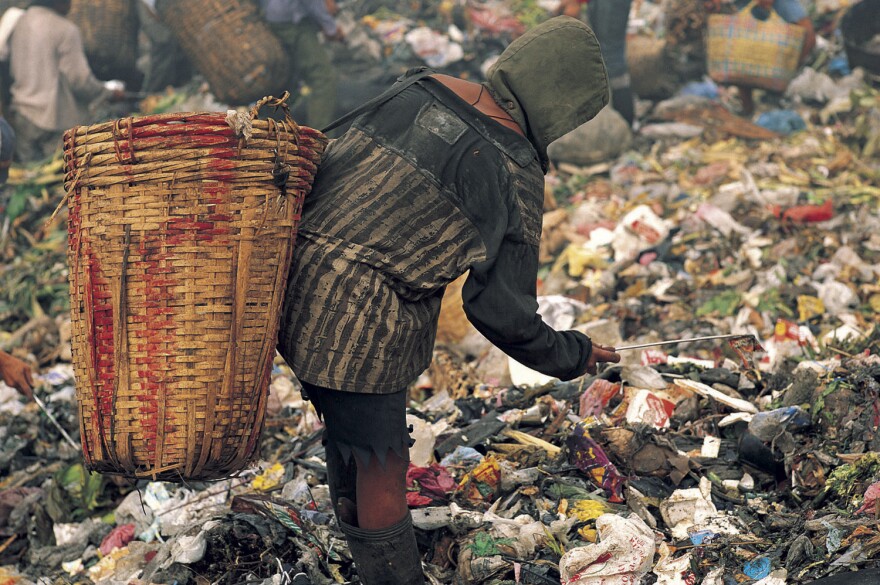EarthTalk®
E - The Environmental Magazine
Dear EarthTalk: The world added its seven-billionth person in 2011, but the news came and went quickly while Charlie Sheen news kept on and on. But isn’t population growth the “elephant in the room” that needs serious attention? Can you outline the major impacts of unchecked population growth and what if anything is being done to try to arrest it? -- Aaron Rodriguez, Tucson, AZ
Unchecked human population growth could be a recipe for doom for the planet and its inhabitants. And it has reached staggering levels in recent years—the number of people on the planet has doubled from 3.5 billion to seven billion in just a half century. While we’ve made great strides in educating people around the world about family planning and birth control, the global fertility rate still hovers around 2.5 children per woman. At that rate, population will grow to 11 billion by 2050 and nearly 27 billion by 2100.
While such a scenario is unlikely given that fertility rates tend to decline as countries develop and modernize, the prospect of a planet with tens of billions of people on it is scary indeed. The first widely published pundit on the potential impacts of too much human population growth was Englishman Thomas Malthus, whose 1798 “An Essay on the Principle of Human Population” warned that violence, genocide, nasty weather, disease epidemics and pestilence would be precursors to widespread famine in a world with too many humans. “The power of population is so superior to the power of the earth to produce subsistence for man, that premature death must in some shape or other visit the human race,” he wrote.
History views Malthus as an extremist and many would argue that, despite population having swelled some seven times since his day, we have so far managed to avert a planet-wide “Malthusian catastrophe” whereby population has simply outpaced our ability to feed ourselves. Nonetheless, a 2007 UNICEF report indicated that 10.9 million children under five-years-old die each year around the world, with malnutrition and other hunger-related diseases responsible for 60 percent of the tragedy. And a 2009 World Health Organization and UNICEF study found that some 24,000 children in developing countries were dying each day from preventable causes like diarrhea resulting from lack of access to clean water for drinking and sanitation.
The most obvious issue with seven billion of us here is our profligate consumption of dwindling natural resources and the waste and pollution generated in the process. A recent joint study by the World Wildlife Fund (WWF) and the Worldwatch Institute found that humans now use 20 percent more renewable resources than can be replaced each year. And while many would say that climate change has eclipsed overpopulation as the major issue of the day, others counter that atmospheric temperatures wouldn’t be growing nearly as much if there weren’t so darn many of us burning so many fossil fuels.
Human population numbers are predicted to trend downward around the world within a few generations. This so-called “demographic transition” is already underway in the U.S. and other developed countries where fertility rates have dropped due to lower infant mortality, increased urbanization and wider access to contraceptives. Given that fertility rates drop as countries develop, and that lesser developed countries have begun to leapfrog ahead in their urbanization and adoption of technology, the United Nations Population Fund predicts that population may peak in the late 21st century and then begin to shrink.
CONTACTS: United Nations Population Fund, www.unfpa.org.
EarthTalk® is written and edited by Roddy Scheer and Doug Moss and is a registered trademark of E - The Environmental Magazine (www.emagazine.com). Send questions to: earthtalk@emagazine.com. Subscribe: www.emagazine.com/subscribe. Free Trial Issue: www.emagazine.com/trial.







